Internal Bleeding After Injury: 10 Signs You Must Not Ignore!
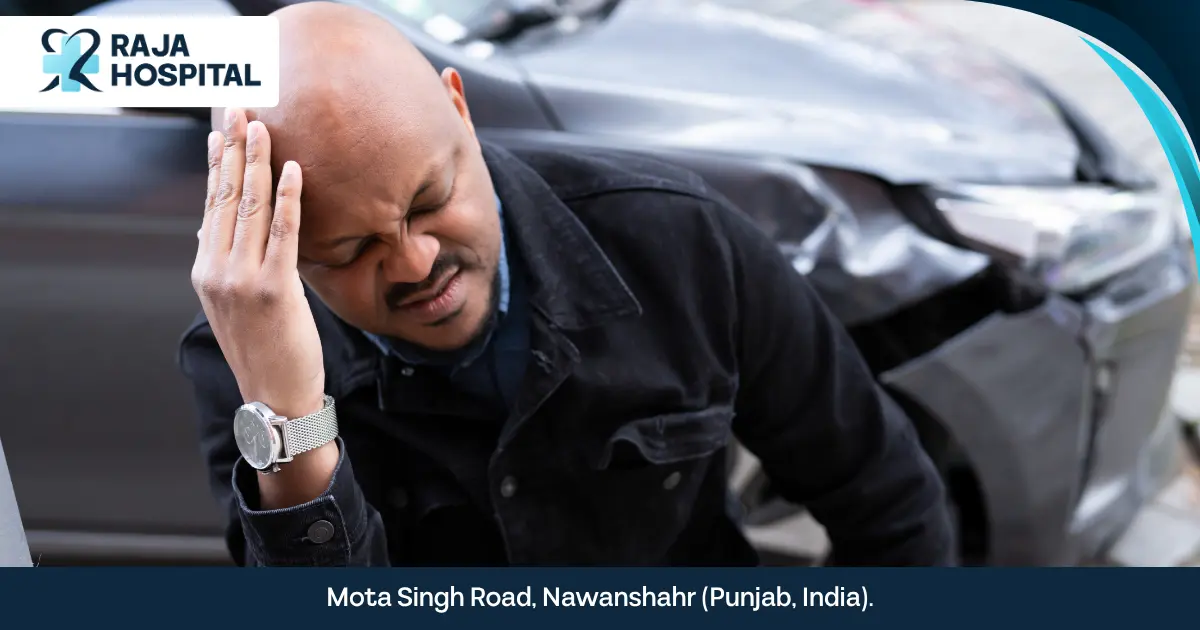
REVIEWED BY DR. SHOKET ALI (MD MEDICINE) on 31 october 2025.
You walked away from the accident. No broken bones. No visible bleeding. Maybe a bruise or two, but nothing serious, right?
That’s exactly what most people think… until it’s too late.
Internal bleeding doesn’t scream. It whispers. And by the time you notice something’s wrong, your body might already be in crisis mode. What’s worse? Most people don’t even realize that internal bleeding can start slowly and silently and still be life-threatening.
Here’s the truth: just because you feel fine doesn’t mean you are fine. Every hour you delay after an injury could mean the difference between early treatment and irreversible damage.
In this article, you’ll learn the 10 hidden signs of internal bleeding, when to rush to the hospital, and why Raja Hospital should be your first stop, even if your symptoms seem small.
Why Feeling “Okay” Right After an Accident Can Be Deadly
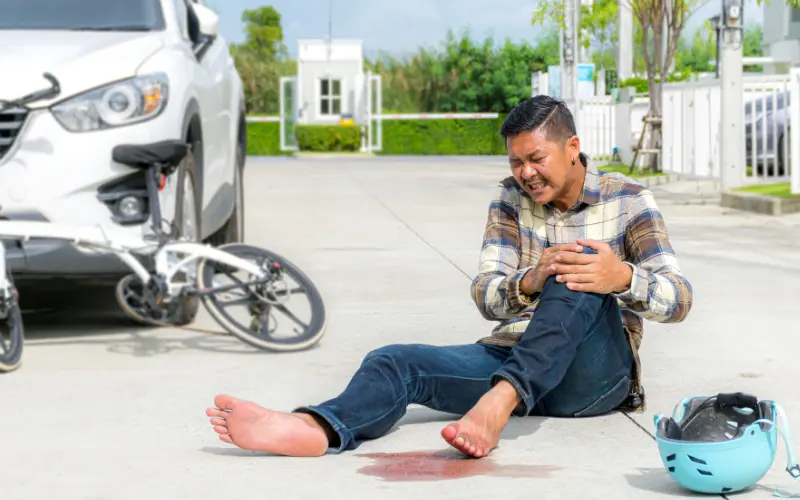
Most people believe that pain is the only red flag after an accident. If it doesn’t hurt, it must not be serious.
Wrong. That belief has put thousands of lives at risk. Here’s the thing: internal bleeding doesn’t always cause immediate pain or visible symptoms. In fact, it can take hours or even days before you start noticing anything unusual. That’s why many people walk away from accidents only to collapse later with serious internal damage.
Your body is built to survive. After an injury, it can mask pain with adrenaline, keeping you “functional” even when something is seriously wrong. This survival mode tricks your brain into thinking everything is okay.
But inside, the bleeding may have already started. It might be slowly filling up spaces in your abdomen, chest, or even your skull.
It’s why doctors often call internal bleeding a silent killer. You can’t see it. You don’t always feel it. And by the time it shows up, the damage may be severe.
Moral of the story? Don’t trust how you feel right after an accident. Trust a medical evaluation instead.
The Warning Signs You Should Never Ignore
Internal bleeding doesn’t knock on the door. It creeps in quietly, often mistaken for tiredness, stress, or the usual soreness after an accident.
Below are 10 symptoms that may appear minor but could be a sign of internal bleeding. If you notice any of these, don’t wait. Get checked immediately.
1. Dizziness or Lightheadedness
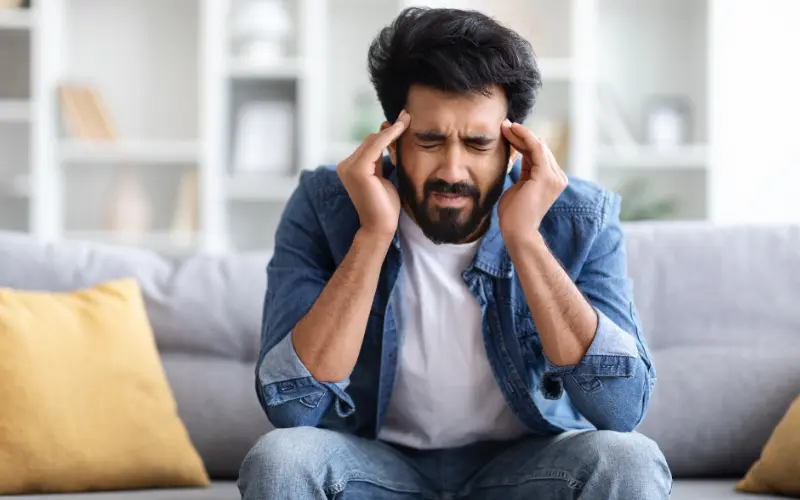
Feeling like the room is spinning or like you might faint isn’t normal, especially after a fall or injury.
- May signal your blood pressure is dropping due to internal blood loss
- Often gets worse when you stand up
- Could lead to fainting if ignored
2. Pale or Cold Skin
When your skin tone looks off or your hands and feet feel unusually cold, take it seriously.
- Indicates reduced blood flow to the skin
- Your body might be diverting blood to vital organs
- Can be an early shock response
3. Fainting or Near-Fainting Spells
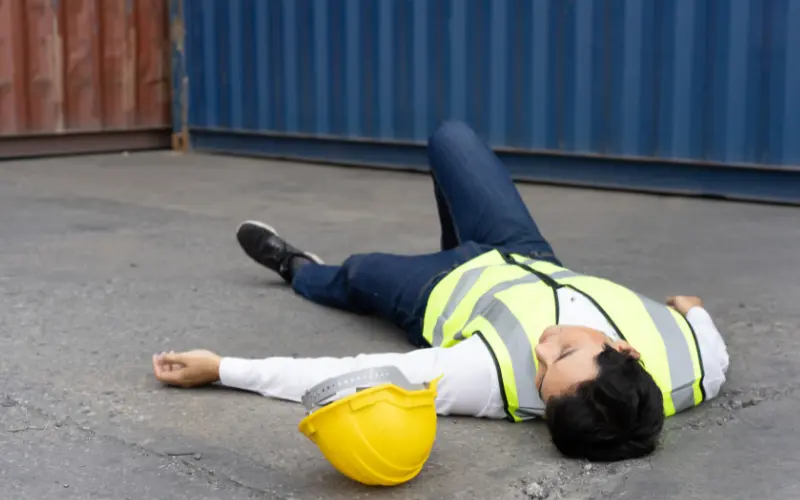
Blackouts or sudden weakness after an injury are never “just stress.”
- Suggests your brain isn’t getting enough oxygen
- May point to ongoing internal blood loss
- Often misjudged as anxiety or fatigue
4. Unexplained Weakness or Fatigue
Feeling like you “just can’t get up” hours after a fall? Don’t ignore it.
- Blood loss can leave your body struggling to function
- Simple tasks may feel draining
- Can sneak up slowly, making it hard to detect
5. Abdominal Pain or Swelling

A sore belly might seem harmless, but it can hide serious issues.
- Could signal bleeding in or around organs like the liver or spleen
- Swelling may indicate fluid buildup inside
- Pain may increase with movement or pressure
6. Deep Purple Bruising
A bruise that looks unusually large or dark could be more than surface-level.
- May mean blood is pooling under the skin from a deeper injury
- Common after blunt force trauma
- Especially concerning the torso or back
7. Shortness of Breath
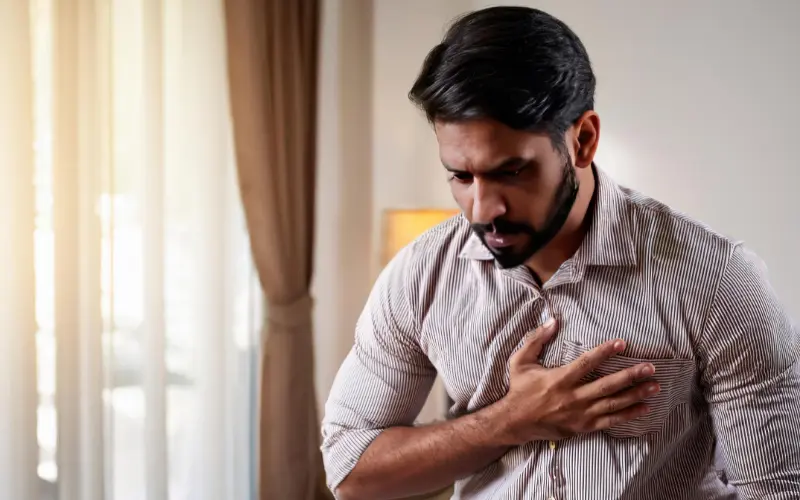
Struggling to breathe even while resting is a loud alarm from your body.
- It could mean blood is pressing against your lungs
- It might also signal bleeding in the chest
- Breathing may feel shallow or strained
8. Blood in Vomit, Stool, or Urine
Seeing red where you shouldn’t is always a red flag.
- Indicates internal bleeding in the stomach, intestines, or kidneys
- Even small traces of blood need urgent attention
- May appear as bright red or dark brown/black
9. Rapid Heartbeat
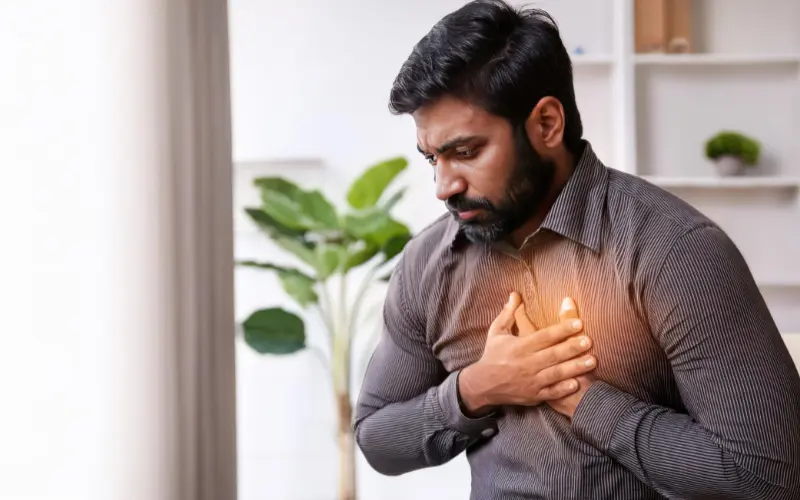
If your heart is racing without any physical effort, something’s off.
- Your body might be trying to maintain blood pressure
- Often paired with sweating or a sense of panic
- It can be easy to overlook when you’re still in shock
10. Vision Problems or Confusion
Changes in how you see or think could mean bleeding in the brain.
- Blurry or double vision
- Trouble focusing or staying awake
- Sudden mood or behavior changes
Even one of these signs is enough to visit the emergency room. Your body won’t always give you a second warning.
What Happens Inside Your Body After an Impact
Not all injuries show up on the outside. A fall, a hit, or a crash can set off a chain reaction inside your body one you might not feel right away.
Here’s what can happen after a high-impact incident, even if there’s no visible wound:
Organs Can Tear or Bleed Internally
Your liver, spleen, kidneys, and even lungs are vulnerable in accidents. A sharp jolt can cause these organs to tear or rupture slightly.
- Bleeding begins internally without breaking the skin
- The affected area may slowly fill with blood
- You may feel pressure, swelling, or general discomfort
Blood Pools in Hidden Spaces
Unlike a cut on your skin, internal bleeding doesn’t drain out. It collects silently.
- Blood may pool around organs or in muscle tissues
- This can trigger inflammation or compress nearby organs
- May cause tightness, bloating, or unexplained pain
Brain Bleeds Can Be Delayed
In head injuries, even small impacts can lead to slow bleeding inside the skull.
- Pressure builds gradually against the brain
- You might not notice symptoms until hours or even days later
- Left untreated, it can lead to permanent damage or death
Why You Might Not Feel Anything Immediately
Adrenaline masks pain. That’s how your body protects you during trauma.
- You may feel “fine” even as internal damage begins
- By the time adrenaline wears off, symptoms can escalate fast
- This is why doctors urge early checks after serious accidents
Your body won’t always tell you when something’s wrong. Sometimes, it hides the truth until it’s too late.
When to Rush to the Hospital (Even If You’re Not Sure)

If there’s one rule to live by after an accident, it’s this: don’t wait for symptoms to show up before getting help.
Many people delay going to the hospital because they “don’t want to overreact.” But when it comes to internal bleeding, overreacting can actually save your life.
Here’s when you should seek immediate medical attention, no second-guessing.
You Were in a High-Impact Accident
Even if you feel okay afterward, the force alone is enough reason to get checked.
- Car crashes, falls from a height, or heavy blows
- Sudden stops or jerks to the body
- Head trauma, even without visible cuts
You’re Not Sure What Hit You
Sometimes, it’s not about how hard you were hit, but where.
- Blows to the stomach, chest, or side can harm vital organs
- Hidden damage is common in sports, the workplace, or domestic accidents
Have you experienced any Symptoms Listed Earlier?
Don’t wait for multiple signs.
- One symptom is enough to act
- Especially true for dizziness, fainting, or deep bruises
You’re Alone or Can’t Be Monitored
If no one is around to keep an eye on you, go get checked.
- Internal bleeding can cause you to lose consciousness
- Being alone can delay help in critical moments
Golden Hour Isn’t a Myth, But It’s Not a Guarantee
The sooner you’re treated, the better your chances.
- Quick scans and tests can detect problems before they escalate
- Hospitals like Raja Hospital are equipped for fast trauma evaluations
Common Myths That Could Cost You Your Life

When it comes to injuries, the worst thing you can trust is “common sense.” These myths sound harmless, but have led to serious consequences, even death.
Let’s set the record straight.
“I didn’t hit my head, so I’m fine.”
Internal bleeding isn’t just a head injury problem.
- Your chest, stomach, and pelvis can bleed without any cuts
- The absence of head trauma doesn’t mean you’re safe
- Internal damage can happen even from indirect impact
“If it were serious, I’d feel pain.”
Not true, your body is designed to keep you moving.
- Adrenaline masks pain for hours after trauma
- Some people don’t feel anything until it’s too late
- Internal damage often escalates quietly
“I’ll just sleep it off.”
Sleeping after trauma without a check-up is dangerous.
- Brain bleeds can worsen during sleep
- You might not wake up if symptoms progress
- Always get evaluated before resting post-injury
“There’s no bleeding, so it’s nothing.”
Visible wounds are just one kind of injury.
- Internal bleeding leaves no obvious trace on the outside
- Deep bruising or swelling is often overlooked
- Lack of blood doesn’t mean lack of danger
“I’ve had worse. I’ll be fine.”
Experience doesn’t predict current safety.
- Every accident is different
- What didn’t hurt before can turn serious now
- Familiar pain is not always harmless
Believing these myths can cost you precious time. And with internal bleeding, time is everything.
Don’t Wait. Visit Raja Hospital Today
At Raja Hospital, our doctors know how to spot hidden injuries. We’ll run the right tests, check you thoroughly, and make sure there’s nothing dangerous going on inside.
- No long waits. Walk in anytime.
- Quick scans to check for internal bleeding
- Friendly staff who care and listen
Your life is too important to risk. Come in. Let us make sure you’re truly safe.
Struggling with same?
Book Your Appointment With Our Expert Doctors

Conclusion:
After an accident, it’s easy to think, “I’m fine.” No cuts, no bleeding, maybe a little sore, but nothing serious, right?
That’s the mistake many people make. Internal bleeding can be slow, silent, and deadly. You might not see it or feel it right away. But inside, your body could be struggling without you even knowing.
So here’s the truth: If you’ve had an accident, any accident, don’t guess. Get checked. It’s the only way to be sure everything is really okay.
